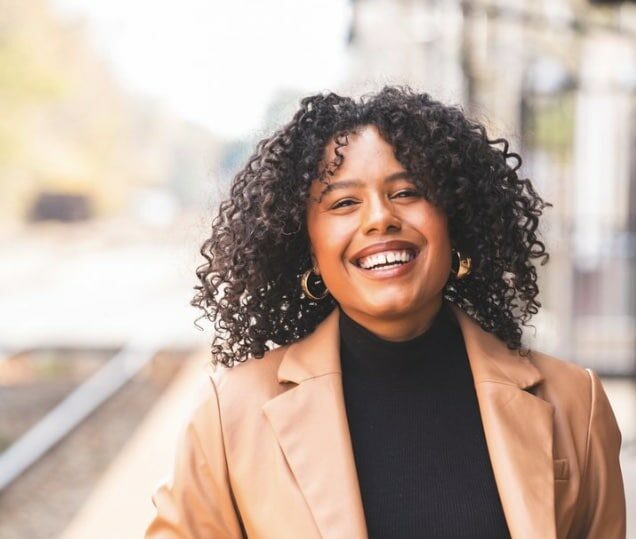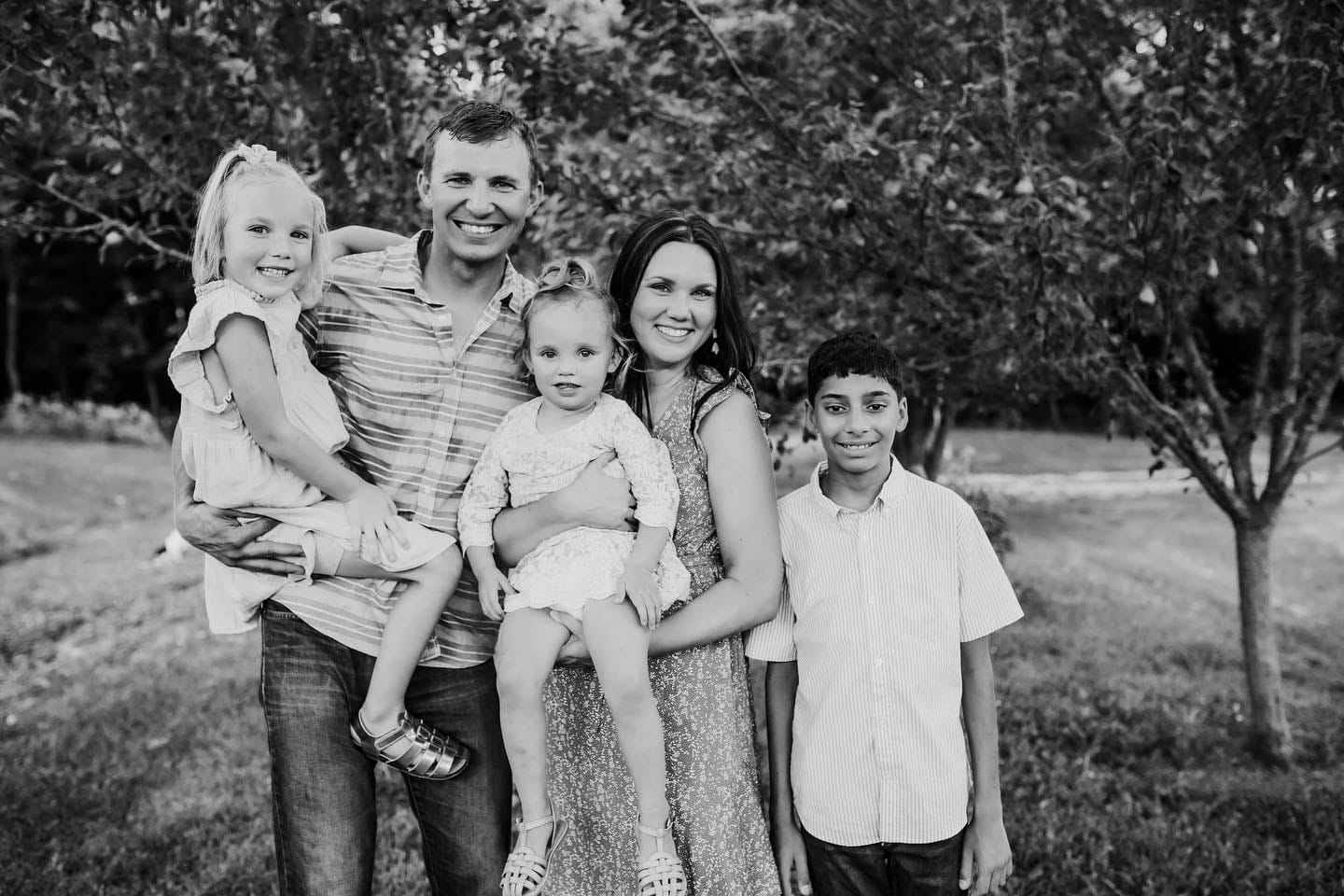
Written by: John and Nicole Dictson
Give bio-families a chance. If you can put aside your fears, biases, and judgements for just a few moments, you might find that they’re not so different from you.
Most children would rather be with their birth parents than in a foster or adoptive home. Our job as foster parents is not to “rescue” anyone, but instead to hold them until it’s time for them to go home. Parents who have lost their kids are not bad people. They’ve just made some mistakes and deserve grace, love and support as much as, or more than, anyone. Most often caring for biological families is a way to show them a different love than they have experienced themselves.
We’re John and Nicole and we began providing respite care for foster families in 2015 and became a certified foster home in early 2016. We have had three children placed in our home since March 31, 2016, all who are back home with their biological families. We have been fortunate enough to be able to maintain relationships with all three families and get to spend time with them regularly.
I, Nicole, became intimately familiar with the foster care system through my career in social work. Through my education and experience combined with my heart for vulnerable populations have really shaped the way we approach foster care, specifically with respect to reunification. John was introduced to foster care by his church in 2011 and it became clear to him very quickly that this was something he wanted to be a part of.
Our first experience in foster care was through respite care. This was our gateway. We had previously taken an introductory certification class and been intimidated by the level of commitment and had we not done respite, we might never have gone back to get certified.
Our very first placement after becoming certified was a one year old girl, Z. She changed our lives forever. Our goal from the beginning has always been to advocate for family reunification, whenever possible, and we sought to do so in this case from day one. We met challenges early on in being able to meet with Z’s birth parents, for reasons that were never clear to us. We requested meetings regularly for the first few months, but CPS repeatedly turned us down, citing various concerns. After Z had been with us for almost five months, we managed to get CPS to agree to a brief supervised meeting with Z’s father.
We arrived before the caseworker and ran into Z’s dad in the parking lot. As soon as Z saw him, her eyes lit up and she scrambled out of my arms to run toward him. It was one of the most beautiful moments of my life. We approached and shook hands with him and he was so kind and sweet. He told us how he was trying to find work and taking all the required classes and doing everything he could to get his daughter back. He thanked us for taking such good care of his daughter while I fought back tears. We told him we were proud of him and that we were rooting for him and Z’s mom. After that, we met with him every week.
It took a bit longer to meet with Z’s mom, but we were able to see her a couple of times before Z went back home. I’ll never forget the night we dropped her off with her mom for the last time. We dressed Z up in a cute new outfit and brought balloons and flowers and when we arrived, Z ran into her mom’s arms with a squeal and a smile. It was perfect. We stayed for a few minutes to chat and congratulate Z’s mom and then we made our way to the car. As we walked down the stairs, we turned around to see Z standing at the window crying for us. It was one of the hardest moments of either of our lives. Not because we had to place her with her mother. There was no question in our minds that we had done the right thing and that Z was where she was supposed to be. It was seeing the confusion in Z’s little 18 month old face, watching her try to reconcile the joy of being back with her mom with the pain of saying goodbye to the family she had spent the last six months coming to love. It was in this moment that we knew that all of our efforts to get to know Z’s parents were so worth it.
Just a few weeks later, we got to see Z again. This time we got to be on the receiving end of her smile and squeal when she saw us and ran across the room and into our arms. It’s been a year and a half since that beautiful day in October when Z went home and we still get to see her and her family at least once a month. John has breakfast with her dad every few weeks and we exchange text messages and calls regularly. About six months ago, we were asked to be Z and her youngest brother’s godparents. Had we given up trying to meet with Z’s parents, we would likely never have seen Z again after we dropped her off that day. And that is an alternative reality we simply cannot imagine. We are so passionate about honoring and maintaining relationships with birth families and we are thankful for this experience confirming what our hearts felt all along.
After Z, we had two other children placed with us, one for 2 weeks and another for 6 months. Both of them have been reunited with their families and we have been fortunate enough to maintain close relationships with each of them. These relationships are often messy and challenging. We walk alongside parents who still struggle with addiction and poverty, who make decisions that we don’t always agree with. We field anxiety fueled calls in the middle of the night and receive text messages asking for help with groceries and diapers regularly. But at the end of the day, we know that these little ones are are where they belong because home truly is where the heart is.
If you let it, foster care will stretch you in ways you never knew you could be stretched. It will open your eyes to a world full of injustice that you’ll never be able to unsee, and that you’ll wonder how you never saw in the first place. It will change the way you think about people and it will teach you to love in the most amazing ways. Foster care will wreck you and from the ruin you’ll be made a better person.
Foster care is about reunification first, and every child deserves to have multiple families loving them. Every child will always love their birth family no matter what occurred, and we feel it is a foster parents role to build that bridge and continue to uplift, encourage and support that family in ways unique to each story.
Even if an adoptive home turns out to be the safest option, kids still love their parents and want them to be a part of their lives. It is the responsibility of adoptive parents to ensure that children are able to maintain that bond whenever possible, no matter what our personal feelings might be toward their birth parents.
If you’re interested but not sure if you’re ready to commit to certification or long term placement, dip your toe in with respite care. This will allow you to experience the joys and challenges of caring for kids in trauma without the weight of commitment.
Foster care is not for everyone.
Know your limits. We believe strongly in quality over quantity when it comes to caring for children in foster care. We so often see foster families who don’t know how to establish boundaries with a broken system and end up taking on way more than they can handle. Not only is this a recipe for “burning out”, but it is also doing a disservice to the kids in your care. These kids have suffered more than most of us will ever understand and they deserve 110% of our love and affection while they are in our care. Don’t bite off more than you can chew.
Pace yourself. When a child in a longer term placement goes home, don’t feel ashamed about taking a break before you take another placement. CPS will call you the very next day, but you shouldn’t feel bad about saying no if you need time to recover. Foster care is emotionally and often physically draining. If you have kids of your own, it can be hard on them. You have to take care of your family if you want your family to have the strength to take care of others. Just like an athlete takes rest days between events to avoid injury, it’s okay for foster families to take periods of rest between placements to avoid burning out.
Find community that is willing to surround you and support you. Love the babies and their families. Loving vulnerable people challenges all your ways to love – it requires you to love despite not getting love in return at times, but it is always worth it.
Foster care is the hardest thing we’ve ever done, but it is also the most beautiful and rewarding thing we’ve ever been a part of.
Instagram: @john.and.nicole



